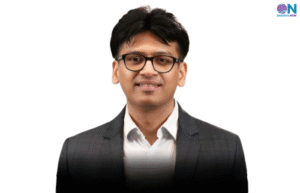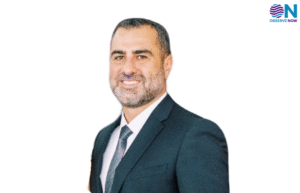Inside Chezuba’s AI-Driven CSR Platform – CEO Sukhendra Rompally Shares Insights with ObserveNow
Artificial Intelligence (AI) and Machine Learning (ML) have revolutionized various aspects of modern life, from personalized recommendations on streaming platforms to advanced medical diagnostics. At their core, AI and ML empower systems to learn from data, recognize patterns, and make decisions with minimal human intervention. Leveraging this technology, corporations are now pioneering innovative approaches to Corporate Social Responsibility (CSR).

One such example is the development of an AI-based CSR platform “Chezuba” designed to facilitate and streamline corporate volunteering and giving programs across more than 100 countries. This platform harnesses the capabilities of AI to optimize volunteer matching, program management, and impact assessment, thereby enhancing the effectiveness and reach of corporate philanthropic initiatives on a global scale. In regards to this ObserveNow Media interacted with Sukhendra Rompally, Founder & CEO, Chezuba.
Below are a few edited excerpts from the interview:
Can you elaborate on the AI algorithms and methodologies employed within Chezuba’s platform to personalize and optimize philanthropic activities for users?
Chezuba uses AI algorithms and machine learning methods to customize the user experience for employees. Here’s a breakdown of how it works:
- During onboarding, we gather data on employee interests, including their preferred causes and skills.
- We analyze this information to align their skills and interests with suitable volunteering projects from our extensive database.
- Personalized recommendations are then displayed on the portal, reflecting their interests and skill sets.
How does Chezuba ensure the authenticity and effectiveness of the nonprofit organizations within its network, especially across diverse global regions?
Chezuba places a strong emphasis on ensuring the authenticity and effectiveness of nonprofit organizations within its network. By screening nonprofits meticulously, Chezuba guarantees that only reputable and impactful organizations are part of its network, enhancing trust and confidence among users.
Nonprofits undergo a registration process on Chezuba’s platform, where they upload essential documents, including registration certificates. These documents are manually verified by Chezuba’s team to confirm the authenticity of the nonprofit.
Chezuba conducts thorough checks to ensure that the nonprofit complies with legal requirements and has the necessary certifications. Any discrepancies or issues identified during this process are handled in onboarding call.
Please share an instance Chezuba significantly enhanced a company’s CSR initiatives, resulting in tangible social impact and employee engagement?
One notable instance where Chezuba significantly enhanced a company’s CSR initiatives is its partnership with Tata Group. Chezuba collaborated with Tata Group to increase the number of volunteering opportunities, especially focusing on skill-based projects.
- Tata’s partnership with Chezuba resulted in a commendable project completion rate of 65% over the last 8 cycles.
- With an average of 1600 employees volunteering with over 480 nonprofits, Tata’s employees had access to over 2000 projects, contributing approximately 51,200 volunteering hours valued at around $500,000.
- Feedback from the survey conducted by Chezuba reflects the program’s success, with 100% of volunteers recommending it to their colleagues and 99% of nonprofits expressing interest in participating again.
Given the diverse range of companies and industries you cater to, how does Chezuba tailor its platform to accommodate varying organizational structures, cultures, and CSR goals?
Chezuba’s platform is designed to be highly customizable, allowing it to accommodate varying customer needs. Here’s how we tailor our platform for varying organizational structures, cultures, and CSR goals:
- Customizable Framework: Our low-code foundation allows us to customize every aspect of our platform, from modules and user interfaces to workflows and access levels. This flexibility ensures that we can align our platform with the unique needs of each client.
- Flexible Pricing and Features: We offer pricing plans and features that can be tailored to the size and CSR objectives of companies, whether they are small startups or large multinational corporations.
- Industry-Focused Volunteering Opportunities: We collaborate closely with companies to curate volunteering opportunities that align with their specific industry focus and social responsibility goals.
- Multilingual and Multicultural Support: With availability in 133 languages and acceptance of all currencies, our platform accommodates diverse linguistic and cultural norms. This inclusivity further enhances our ability to cater to diverse global clients.
In what ways does Chezuba leverage gamification techniques to incentivize and sustain employee participation in volunteering and donation activities over time?
Chezuba uses gamification techniques in several ways to motivate and retain user engagement:
- Rewards: Users earn points and badges by participating in volunteering tasks, completing micro-tasks, and contributing donations. This fosters a sense of achievement and friendly competition among colleagues.
- Leaderboard: The platform features company-wide leaderboards highlighting top performers based on volunteering hours, donation contributions, and social impact generated. This feature encourages healthy competition and motivates employees to create greater impact.
- Social Recognition: Chezuba allows employees to share their volunteering experiences and achievements through social media integration within the platform. This helps them build a sense of community and recognition for their contributions.






![[24]7.ai appoints Nina Nair as CHRO for global BPO business](https://observenow.com/wp-content/uploads/2024/04/HRS-1.jpeg)
























